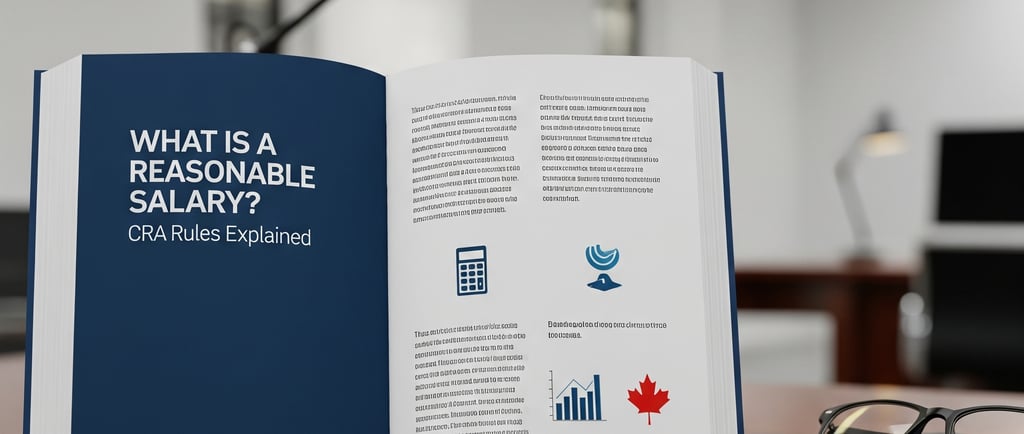What Is a Reasonable Salary? CRA Rules Explained
Determining a reasonable salary is crucial for business owners and employees alike to stay compliant with tax regulations. The Canada Revenue Agency (CRA) has clear guidelines that dictate what qualifies as a reasonable salary. In this post, we’ll break down CRA’s rules and help you understand how to stay within compliance.
8/20/20252 min read


What is a "Reasonable Salary"?
A "reasonable salary" is the amount a business can pay an individual for their services without raising red flags with the CRA. It is not about paying the least possible salary but rather ensuring the salary aligns with industry standards, the individual’s role, and the company’s financial situation.
Unlike "market salaries," which fluctuate based on the general economic environment, CRA defines a reasonable salary by considering the size of the business, the position held, and the industry norms.
Example:
For instance, a small business owner might pay themselves a reasonable salary based on what other owners in their industry and region are making for similar work.
CRA Guidelines for Reasonable Salaries
The CRA’s determination of a reasonable salary considers various factors, including:
Business Size and Structure: Larger companies may pay higher salaries than small businesses or sole proprietors.
Industry Standards: CRA expects the salary to align with what is typically paid in the specific industry for similar roles.
Employee Role and Responsibilities: The more critical the role, the higher the salary might need to be to reflect the value provided to the business.
For example, if a business is generating substantial profits, the CRA would expect the owner or senior employees to be compensated reasonably according to their expertise and contribution.
Potential Consequences of Overpaying or Underpaying
Overpaying or underpaying salaries can lead to significant consequences.
Overpaying: If a salary exceeds what is reasonable, the CRA might disallow certain tax deductions, leading to an increase in taxable income and, therefore, higher taxes.
Underpaying: If the CRA finds that the salary is too low for the employee’s role or business size, it could question the reasonableness of the salary and impose penalties.
In either case, businesses could face audits and adjustments to tax returns, along with penalties for non-compliance.
How to Stay Compliant
To ensure your business is compliant with CRA’s reasonable salary requirements:
Consult with a tax professional: Ensure that your salary is in line with industry standards and CRA guidelines.
Keep accurate records: Document the rationale behind salary decisions and how they align with your business’s financial situation.
Review salaries regularly: Update salary levels to reflect changes in your business and industry trends.
Conclusion
In conclusion, setting a reasonable salary in compliance with CRA regulations is essential for both tax purposes and business integrity. At TIKI TAX, we specialize in helping businesses navigate complex tax rules. Contact us today to ensure you’re on the right track.
If you're unsure whether your salary structure is reasonable under CRA rules, contact us at TIKI TAX for expert advice and tax services. We're here to help!
TiKi Tax
© 2025. All rights reserved.
